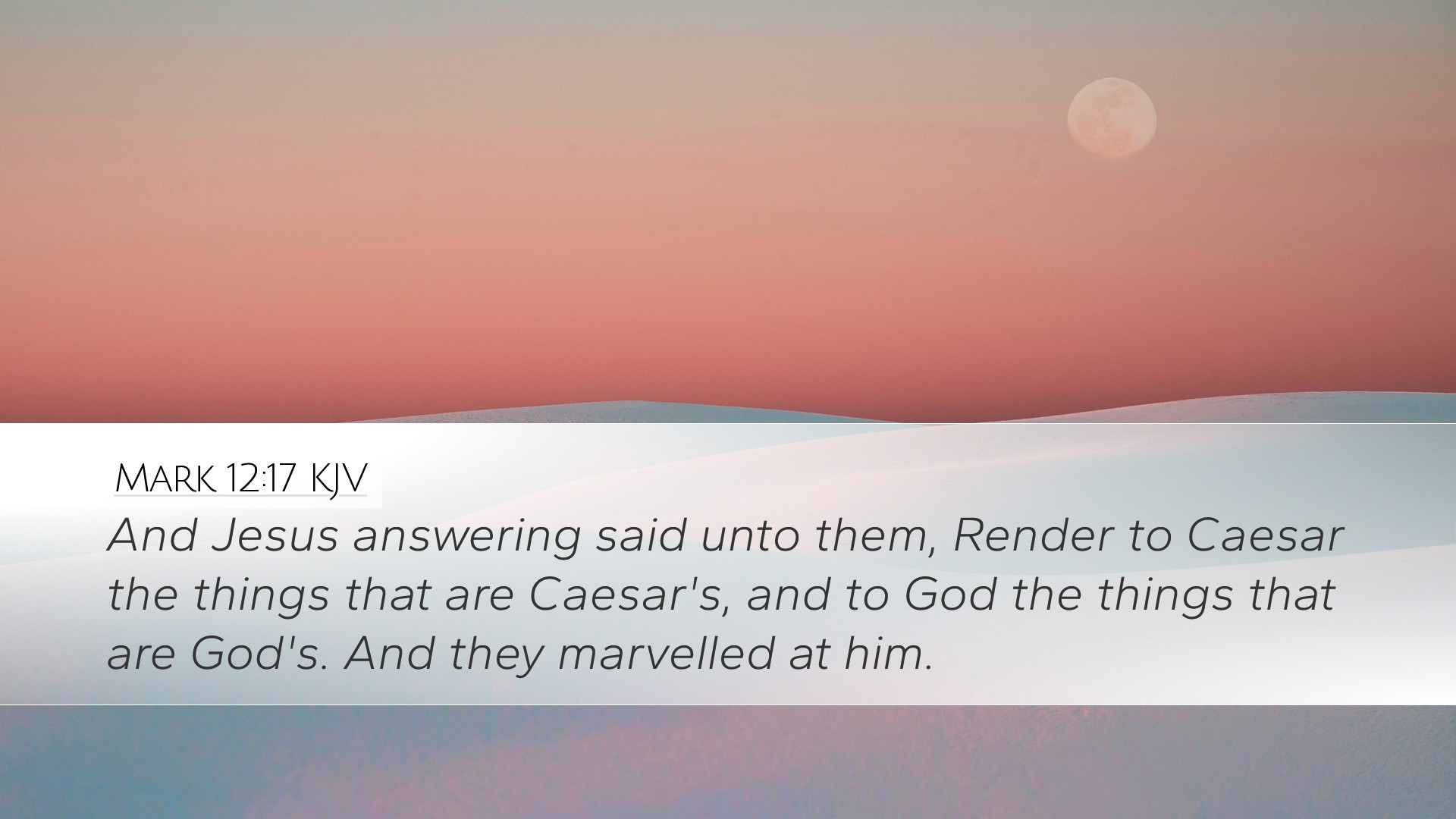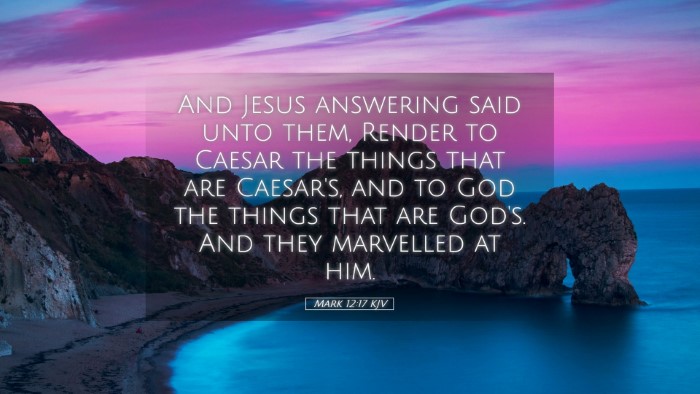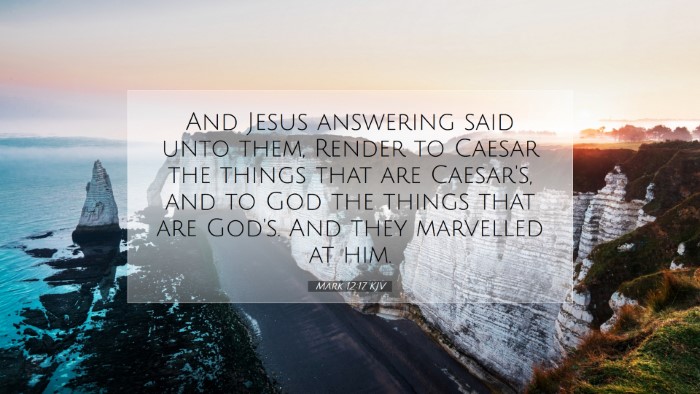Commentary on Mark 12:17
Bible Verse: “And Jesus answered and said to them, 'Render to Caesar the things that are Caesar’s, and to God the things that are God’s.'”
Introduction
This verse is part of a profound encounter between Jesus and the religious leaders of His time. It addresses the relationship between civil authority and divine sovereignty, presenting a fundamental principle that continues to resonate with believers and theologians today.
Contextual Overview
In Mark 12, we find Jesus engaged in a series of confrontations with the Pharisees and Herodians, illustrating His wisdom and authority. This specific encounter occurs immediately after His parables aimed at the religious leaders, intended to provoke thought about their spiritual state.
Exegesis and Interpretation
Render to Caesar: Civil Responsibility
Matthew Henry's Commentary: Henry interprets Jesus' instruction to “render to Caesar” as a clear acknowledgment of the legitimacy of civil governance. He emphasizes that Jesus does not dismiss civil authority but instead affirms its role in society. Caesar represents earthly governance, which is ordained by God for order and justice.
Albert Barnes' Notes: Barnes elucidates that paying taxes is a civic duty. He explains that while believers’ ultimate allegiance is to God, they are still required to adhere to the laws and responsibilities placed upon them by civil authorities.
Things that are God’s: Divine Authority
Adam Clarke's Commentary: Clarke draws attention to the second part of Jesus' statement: “and to God the things that are God’s.” He posits that this refers to the heart, soul, and service of man, which are due to God alone. Clarke argues that while we fulfill our responsibilities to earthly authorities, we must not neglect our duties to our Creator, stressing the importance of spiritual devotion over material obligation.
Theological Implications
Dual Citizenship
This verse encapsulates the concept of dual citizenship for believers. As citizens of heaven, Christians are called to live according to God’s laws, while also being responsible citizens of their respective countries. This tension requires discernment and wisdom, as faith in Christ influences actions and attitudes towards government.
The Relationship Between Church and State
Mark 12:17 provides a foundational text for understanding the complex relationship between church and state. Early church fathers and later theologians have debated the implications of this verse regarding the authority of government versus the authority of God, contributing to contemporary discussions on religious freedom and civil rights.
Practical Applications
- Living Out Civil Duties: Believers are encouraged to engage actively in their civic responsibilities, including voting and paying taxes, as an expression of their witness to the world.
- Prioritizing Spiritual Commitments: While fulfilling civil obligations, Christians must prioritize their relationship with God, ensuring that their lives reflect His values above temporal concerns.
- Wisdom in Civic Engagement: In matters of civil disobedience or moral conflict, this passage serves as a guide for believers on how to weigh their actions against both civil law and divine command.
Conclusion
Mark 12:17 challenges believers to navigate the dual realities of earthly governance and divine sovereignty. Jesus' words resonate with timeless truths about our responsibilities as both citizens of our nations and followers of Christ. Reflecting on these divine principles encourages pastors, theologians, and students of Scripture to integrate their faith deeply into all aspects of life.
Reflection Questions
- How can we balance our responsibilities to earthly authorities with our devotion to God?
- In what ways can the church contribute to discussions about the role of government in society?
- What does it mean for us to render unto God the things that are God’s in our daily lives?


